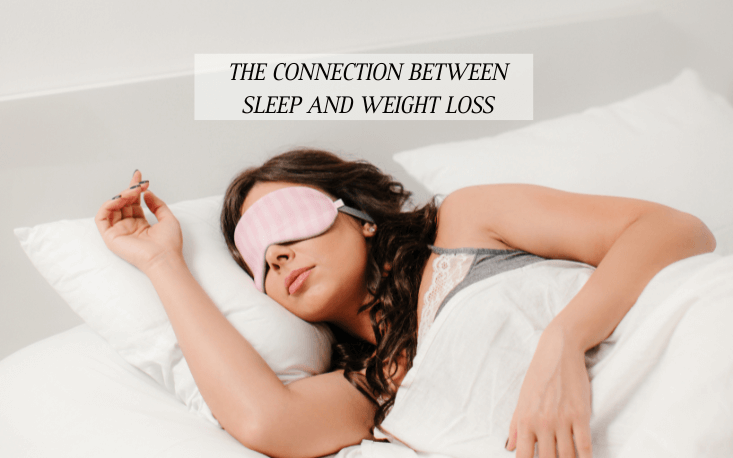When we think about weight loss, most of us focus on diet and exercise—but there’s a third factor that often gets overlooked: sleep. Getting enough quality sleep isn’t just important for energy and mood—it also plays a major role in how your body burns fat, builds muscle, and regulates hunger.
If you’re doing “everything right” and still not seeing results, poor sleep could be the missing piece in your weight loss puzzle.
How Sleep Affects Your Body and Weight Loss
Sleep impacts nearly every system in your body, from brain function to metabolism. Here’s how it ties into weight loss:
- Hormones That Control Hunger
Sleep regulates the hormones ghrelin and leptin, which are responsible for hunger and fullness.- Ghrelin tells your brain you’re hungry.
- Leptin signals when you’re full.
- Poor Sleep = More Cravings
Ever noticed that you crave junk food more when you’re tired? That’s because sleep deprivation affects the brain’s reward centers. When you’re low on sleep, your brain is more likely to seek quick energy sources like carbs and sugar—even if you’re not physically hungry. - Slower Metabolism
Lack of sleep can also slow down your resting metabolic rate (RMR)—the number of calories your body burns while at rest. A slower metabolism means fewer calories burned throughout the day, making weight loss harder. - Increased Fat Storage
Poor sleep increases insulin resistance, which means your body has a harder time processing sugars. This can lead to more fat being stored—especially around the belly area—and can even increase your risk of type 2 diabetes over time. - Less Energy to Work Out
It’s hard to give 100% at the gym (or even get there at all) when you’re running on empty. Lack of sleep affects coordination, strength, endurance, and motivation—all of which are key for effective workouts.
How Much Sleep Do You Really Need?
Most adults need 7 to 9 hours of sleep per night. Quality matters too. Tossing and turning all night doesn’t give your body the deep, restorative sleep it needs to repair and recover.
Tips for Better Sleep (and Better Weight Loss)
- Stick to a consistent sleep schedule, even on weekends
- Limit screen time before bed—blue light can mess with your natural sleep cycle
- Avoid heavy meals, caffeine, and alcohol late in the evening
- Create a relaxing bedtime routine (stretch, read, meditate)
- Make your room cool, dark, and quiet for better sleep quality
Sleep isn’t just a luxury—it’s a key part of your weight loss journey. When you prioritize good sleep, you give your body the chance to recover, regulate hormones, and function at its best.
So if the scale isn’t moving, ask yourself: are you getting enough rest? Fixing your sleep might just be the game-changer you’ve been missing.
Need help building a better nighttime routine or balancing fitness and rest? Drop a comment or message me—I’m here to help!

